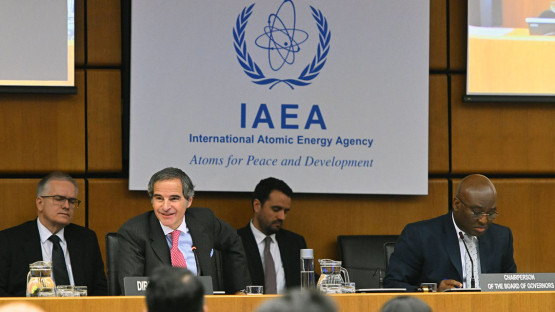The IAEA Director General has briefed the Board of Governors on his high-level meetings in Tehran last week, describing his discussions with the new government as constructive. Nevertheless, he pointed out, there were ongoing concerns.
“It is clear that the accumulation of enriched uranium at very high levels has been a matter of concern for many around the world. And this is why I requested the Islamic Republic of Iran to exercise restraint. Not only to exercise restraint, but also if possible, to stop increasing the stockpile of sixty percent uranium. And this request of mine was accepted by Iran.”
Rafael Mariano Grossi went on to discuss how this was an initial step, and a lot more needed to be done. He said: “It is the duty of the IAEA to preserve the regime of which we are the custodians - the non-proliferation regime. And this has been at the heart of this important effort.”






